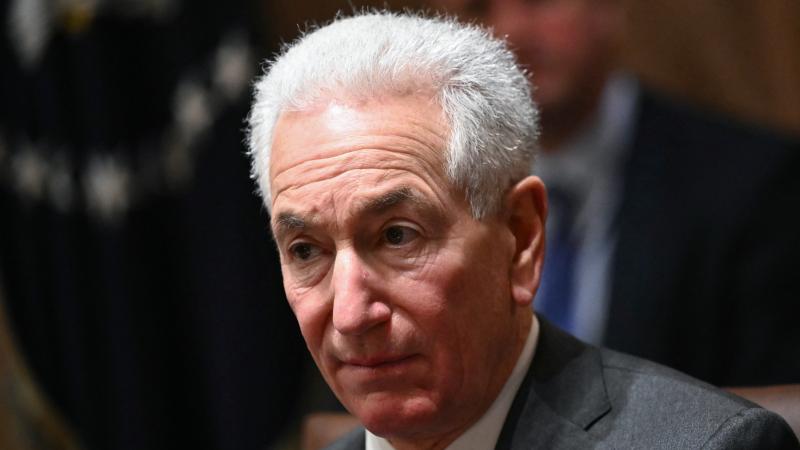Queen Elizabeth II's death closes 'Greatest Generation' era, yields to uncertain royal future
King Charles III faces steep challenges, low expectations succeeding his mother in a turbulent world.
As World War II raged and her royal parents tried to save Britain from the destruction of Nazi Germany's blitzkriegs, a young Princess Elizabeth flashed the steely resolve and unwavering commitment to public service that would eventually become the hallmark of her seven-decade reign as monarch.
Though a royal, Elizabeth insisted on serving in the British Army like all of her fellow countrywomen under the age of 30 who were being conscripted for service in the female-dominated Auxiliary Territorial Service or to work in a factory.
In doing so, Elizabeth defied the wishes of her father, King George VI, who had previously determined the princess' royal duties outweighed the need for her to serve in an increasingly depleted British war machine.
Elizabeth did not care. At the young age of 14, she showed her mettle and independence by broadcasting a message to Britain's children to have courage in the face of relentless bombardment. By 18, she was determined to serve in the Auxiliary Territorial Service and enlisted in 1944 during some of the war's darkest days.
She trained as a driver and mechanic, eventually rising to the rank of Junior Commander, the equivalent today of captain and she served until the U.S-led coalition defeated Germany and Japan.
At the age of 21, the future queen gave an interview in 1947 from South Africa that defined her vision for being royal and became the roadmap for her unprecedented reign as the longest serving monarch in British history.
"There is a motto which has been borne by many of my ancestors—a noble motto, 'I serve,'" she declared. "Those words were an inspiration to many bygone heirs to the Throne when they made their knightly dedication as they came to manhood. I cannot do quite as they did.
"But through the inventions of science I can do what was not possible for any of them. I can make my solemn act of dedication with a whole Empire listening. I should like to make that dedication now. It is very simple."
It was that service to country that motivated her, and became the trademark of other coming-of-age leaders of the Greatest Generation. She was never distracted from the mission as the British empire dwindled through emancipation, endured the pain of additional wars, declared the end of African apartheid, and disgorged the discomfort of family scandals and Buckingham Palace's trademark tabloid gossip.
Her recipe for staying true to service was simple: follow the royal edict to "never complain, never explain."
At times, like with Princess Diana's tragic death, Elizabeth's steely resolve made her feel distant, stoic or detached. At other times, it provided remarkable strength to countrymen and women, even into her 90s when she rallied the nation through a lethal pandemic that nearly felled the country's prime minister Boris Johnson.
And when she passed Thursday at the age of 96, Queen Elizabeth II closed the book on the Greatest Generation's ruling class with the same lack of drama that defined her reign. She carried her duties out to her final 48 hours, then passed after a brief illness surrounded by family.
"Some people now are like, 'Oh, let's not talk about the greatest generation. That was hyperbolic.' No. It wasn't. And she represented that generation. It's just an end of an era," former U.S. Defense Secretary Christopher Miller told Just the News on Thursday.
"I'm a little sad to tell you the truth, you know, because we compare those gigantic leaders like her from that era, where it was an existential struggle, and how they carried themselves with dignity and respect and composure and discipline. And now to see the nonsense that happens now over just such silly things," he added.
Television journalist and best-selling author Bill O'Reilly said Elizabeth's legacy would include one other dedication often overlooked during her tenure.
"The Queen always knew that Britain and the USA had to be together in order to counter the horror of communism, and now Putin and China and Iran and the jihadists," he said. "And her steadfast support of America was downplayed. But in history, it was very important."
O'Reilly said Elizabeth typified the "old school" mentality of the Greatest Generation and the Baby Boomers that followed, a regimen of respect, properness and discipline that too often is eschewed by today's younger generations.
British journalist Alexander Larman, author of the "The Crown in Crisis," said Elizabeth's record of achievement, stability and dignity will pose challenges for the eldest son who now succeeds her, King Charles III.
"In both America and in Britain they are going to see her not just as the greatest monarch there ever has been, but also someone who set an impossibly high standard for any other monarch to follow. We now have King Charles III," Larman told the Just the News, Not Noise television show. "I don't think the early reaction to him has been of particular excitement.
"The bar has been set too high. How do you follow that? Seventy glorious years," he added.
Larman said Charles' difficult divorce from Princess Diana, his bumpy effort to sell his second wife Camilla to the British public and his youngest son's marriage to American actress Meghan Markle and the tell-all interviews and expected book to follow all add to the new king's early challenges as does his age at 73.
"If you take the Queen's motto of never complain, never explain, he is a very different figure because he has complained a lot and he has explained a lot. So we know a lot more about him," he said.
Larman said Charles likely is to be viewed as a "transitional monarch" holding the throne for his eldest son William. "I don't think anyone has high expectations," he added.
















